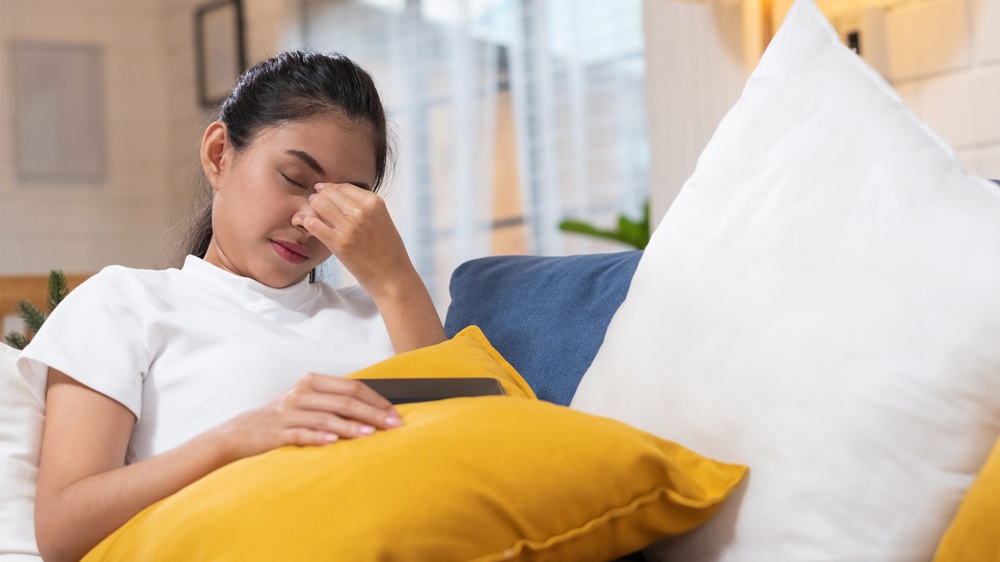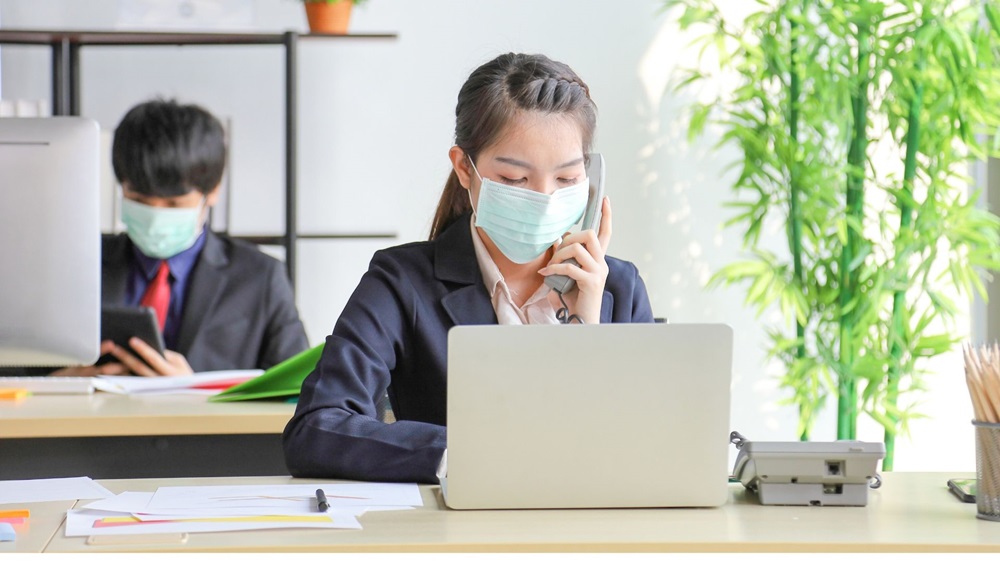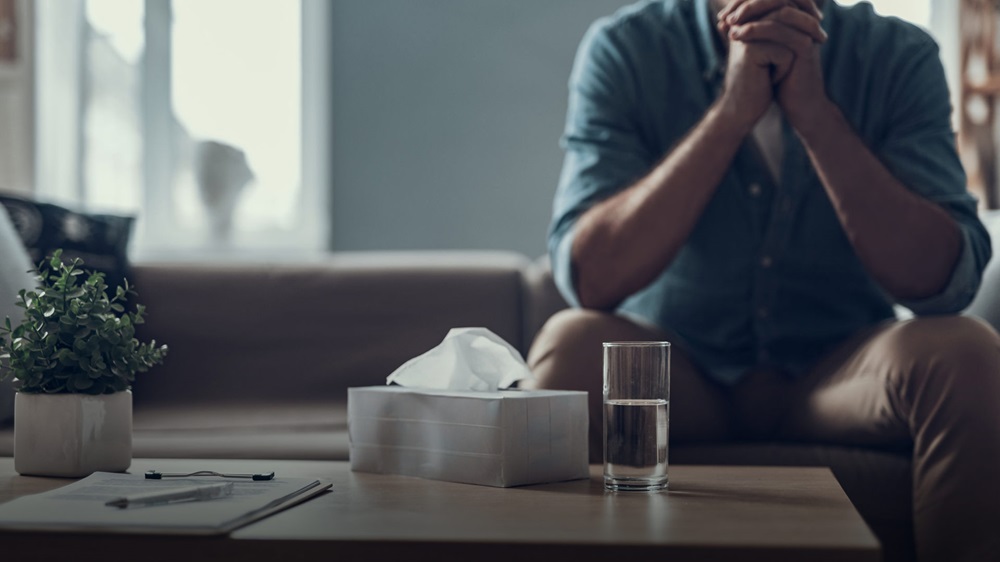
Astronauts have been known to spend up to a year, mostly alone in confined quarters, floating above the Earth. While we are not astronauts, who are by nature highly resilient and undergo rigorous isolation training to cope with the conditions in space, many of us are starting to feel the effects of being confined to our homes, without much human interaction, during this circuit breaker.
Feeling alone and sad, and not being able to cope with these feelings can lead to “cabin fever”.
What is Cabin Fever?
Adrienne Sng, a National CARE Hotline volunteer who is the Director of Clinical Services at Boys’ Town, explains, “Cabin fever refers to the cycle of negative and distressing emotions experienced by individuals as a result of being isolated or feeling ‘cut off’ from society at large.”
The term cabin fever is often used in countries to describe the feelings experienced by those trapped at home because of extreme weather. However, people all over the world – including in sunny Singapore – may now be experiencing the phenomenon as they stay at home for long periods of time during COVID-19.
Some of the symptoms of cabin fever include stress, restlessness, impatience, being easily agitated or highly irritable, lethargy, decreased motivation, persistent sadness, low moods, having a sense of hopelessness, mistrust of people, poor concentration, poor sleep hygiene, food cravings and even weight changes.
Different People, Different Symptoms
“Different people may experience a combination of symptoms, and to a varying extent. This depends on their personality, temperament and current coping abilities,” said Ms Sng.
For instance, extroverts may feel worse at first because they enjoy being with other people.
While extroverts can adapt to being alone with time, Ms Sng added, “As isolation prolongs, both extroverts and introverts may similarly find themselves feeling distressed at the situation.”
Of greater concern are those who already have mental health issues. These people should seek the help they need if they feel their moods deteriorating.
“The increased distress experienced may trigger other mental health disorders like generalised anxiety, paranoia, obsessive compulsive disorder, depression and some may entertain suicidal thoughts,” said Ms Sng.
While most of us will not develop mental health disorders from cabin fever, it may cause us to feel more anxious, irritable and sad.
“But if you find yourself being worried to a point where it impedes your daily functioning, like poorer appetite, poor sleep patterns, or if you are unable to concentrate or complete your work tasks, it would be advisable to seek help from a mental health practitioner,” said Ms Sng.
How to Cope
To manage cabin fever, it is important to stick to our usual work, sleep and meal times, and talk to friends or family if you feel distressed.
Ms Sng suggests that shifting our mindset to focus on positive thoughts also helps.
“Practising gratitude daily has been found to be effective in building coping skills and strengthening mental resources. Reframing of the situation is highly encouraged – instead of seeing oneself as ‘being stuck’, perhaps we could adopt the mindset of ‘let’s not waste this circuit breaker season’ and use it to recharge, reset and even re-invent ourselves.
We can accept that the circuit breaker is a transient phase, and this too shall pass.”
Tips to combat Cabin Fever
Day-to-Day functioning
- Eat and sleep at your normal times, as if you were still going to your workplace
- Shower and change out of your sleepwear
- Avoid long afternoon naps
Work
- Set weekly work tasks and review them at the end of the week
- Put goals in visible sight
- Set clear time for work and coffee breaks
- When taking breaks, avoid screens like watching TV or playing online games; instead, look out of the window to enjoy nature - the sight of greenery or blue skies helps rest your eyes
Mental well-being
- Stay close to trusted friends
- Keep a log of activities or tasks to be accomplished for the day – like a checklist you have at work – and check the tasks off when you’re done
- Name something that you are thankful for at the start of the day
- Take a two-minute break every day to clear your mind
- Keep a visual calendar in sight so you know the actual day and date
Social and Recreational
- Engage with family members in your household like eating together, playing games, having conversations, doing projects
- Set aside time to connect with extended family and friends over video/phone calls
- Have a special take-out meal once or twice a week so you have something to look forward to
- Learn something new via online videos (e.g. fitness, cooking, home improvement)
- Enjoy online museum tours or watch online musicals and performances
- If you do leave the house, you can relieve some stress with this wellness exercise:
- Take two minutes and use your senses to take in your environment and listen to the noises around you
- Take deep breaths and exhale slowly
- Concentrate on your steps, noting the number you take, footsteps rhythm and the weight of your foot on the ground
- In your mind, use an anchoring phrase like “Today is (day/date) and I am in (location) doing (activity) for (how long)”
| Need Help? Call 1800-202-6868 If you are feeling stressed, anxious or alone, call the National CARE Hotline to speak to a trained professional. The Hotline is open 24/7. Some 500 psychologists, counsellors, social workers, psychiatrists and public officers have volunteered to man the Hotline. They will offer emotional support if you are feeling stressed over your job, finances, marital and family tensions arising from the COVID-19 pandemic. Our trained officers will also direct you to community and public resources, such as social service agencies or hospitals and polyclinics, should you require further assistance. Other hotlines you can call include: |
[Mental Well-being]
[Marital and parenting issues]
[Violence or abuse]
[Counselling]
[For all other helplines]
|
About the Contributor
Adrienne is the Director of Clinical Services at Boys’ Town. She also sits on the Board of New Life Community Services and is a NCSS Social Service Fellow. As a mental health clinician and a Singapore Registered Psychologist, Adrienne enthusiastically answered the call of duty to volunteer for the National CARE Hotline. She is a consulting supervisor for our various teams of Duty Care Officers who man the Hotline.
We use cookies to tailor your browsing experience. By continuing to use Gov.sg, you accept our use of cookies. To decline cookies at any time, you may adjust your browser settings. Find out more about your cookie preferences here .

















